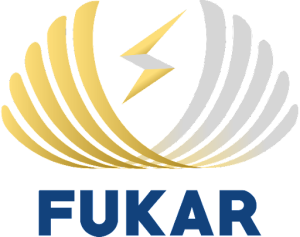Automotive Metal Protection Coating
In the automotive industry, durability and reliability are key factors influencing consumer decisions. As vehicles are exposed to harsh environments, fluctuating temperatures, moisture, and road salt, metal corrosion becomes an inevitable challenge. Protecting metal surfaces from corrosion not only enhances vehicle longevity but also ensures safety, aesthetic value, and overall performance. One of the most effective methods to prevent corrosion is zinc plating, a process widely adopted by automakers due to its exceptional protective properties.

Why Metal Surface Protection Matters
Corrosion occurs when metals react with environmental factors such as oxygen, water, and salts, leading to gradual degradation. Left unchecked, this process compromises the structural integrity of metal components, increases repair costs, and diminishes vehicle value over time.
For the automotive industry, metal surface protection is critical for the following reasons:
Ensuring Safety
Corroded components, especially in structural areas like the chassis and frame, can fail under stress, posing safety risks.
Reducing Maintenance Costs
Corrosion-resistant vehicles require fewer extensive repairs, minimizing upkeep expenses for owners.
Prolonging Aesthetic Appeal
Corrosion can tarnish the appearance of a vehicle, reducing its resale value. Proper protection ensures the vehicle looks pristine for longer.
Meeting Industry Standards
Automotive manufacturers must adhere to strict quality and durability guidelines, and corrosion protection plays a significant role in compliance.
The Science Behind Zinc Plating
Among the numerous methods available for corrosion protection, zinc plating stands out as a favored technique due to its efficiency, durability, and cost-effectiveness. Zinc plating involves applying a thin layer of zinc to metal surfaces through an electroplating process. Here’s why zinc plating is so effective:
Sacrificial Protection
Zinc is a highly active metal that corrodes more readily than steel or iron. When zinc-plated components are exposed to corrosive elements, the zinc layer acts as a “sacrificial” barrier, absorbing the corrosive impact and shielding the underlying metal.
Barrier Formation
Zinc plating not only provides sacrificial protection but also forms a physical barrier that prevents moisture and other corrosive agents from reaching the metal substrate.
Self-Healing Properties
One of zinc plating’s unique characteristics is its ability to develop a protective layer called zinc oxide when scratched or damaged. This self-healing effect enhances the longevity of the plating and maintains corrosion resistance.
Compatibility with Additional Coatings
Zinc plating serves as an excellent base layer for other coatings, such as paint or powder coating, allowing manufacturers to further enhance corrosion resistance and aesthetics.
Environmentally Sustainable Options
Advances in zinc plating technology have introduced eco-friendly processes, such as trivalent chromate coatings, which reduce environmental impact while maintaining superior corrosion protection.
Applications in the Automotive Industry
Zinc plating is extensively used to protect vital automotive components, ensuring reliability and durability in demanding conditions. Below are some examples of its applications:
Chassis and Suspension Systems
Components in the underbody of vehicles face constant exposure to moisture and road salt. Zinc plating shields these parts from corrosion, preserving structural integrity.
Fasteners
Screws, bolts, and other small fasteners are zinc-plated to prevent rust, ensuring the components function effectively and maintain their strength.
Brake Systems
Zinc-plated brake components resist corrosion, ensuring safety and optimal performance over time.
Fuel and Transmission Lines
Zinc plating protects metal lines against corrosive elements, preventing leaks and extending the lifespan of critical systems.
Benefits for Consumers and Manufacturers
For Consumers:
- Enhanced vehicle durability and lifespan.
- Reduced maintenance and repair costs.
- Improved resale value due to better aesthetics and functionality.
For Manufacturers:
- Compliance with quality standards and regulations.
- Reduced warranty claims related to corrosion issues.
- Opportunity to innovate and maintain competitive advantages in vehicle design and engineering.
As the automotive industry evolves, the demand for advanced corrosion protection methods like zinc plating will continue to grow. Increased awareness of sustainability is also incentivizing manufacturers to innovate environmentally friendly surface protection technologies. By investing in advanced solutions to combat corrosion, automakers not only extend the lifespan of vehicles but also ensure customer satisfaction and safety in the long term.
